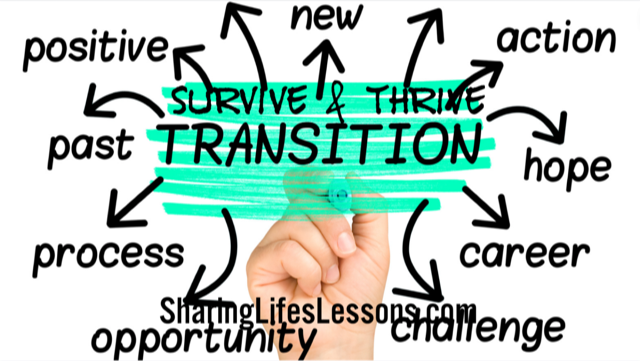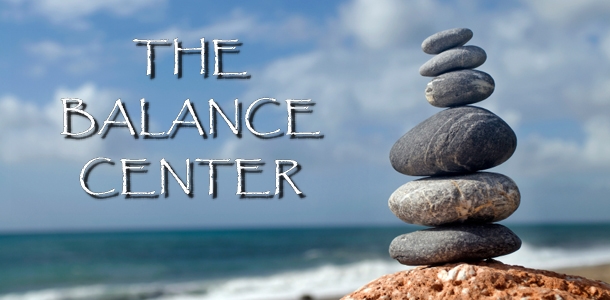5 ways to survive and thrive with life’s transitions!
- 30
- August
- 2023

Are you currently going through any transitions in your life? If so, you’re not alone. Transition is just another word for change. We’ve all heard the cliché, the one constant thing in life – is change. What made us think about this is we recently got together with our family. We heard wonderful stories of what has happened in their lives to bring them to the point of their transitions. For sure, this was a great time sharing lots of love, good food and bountiful hugs. After we got home, we realized that, regardless of age, everyone there was going through a transition of some sort.
We thought about you, and we know there must be some transitions, some changes, big or small, that are happening in your life. In the next few days, many people have children going off to school or college. Some people are moving and expanding living space as their family grows. Other people are downsizing as their family shrinks with family members leaving for jobs or getting married.
Sometimes the transitions engender joyful expectations. At other times, the transitions bring sadness. Or sometimes it’s a combination of emotions as loved ones go off to make their mark in the world and family members miss them. Yet, they are happy that these young people have grown into responsible, independent adults. Also, as people get older, downsizing can be difficult, but it can also open a new life with new friends, and new experiences. As Robbie Shell says, “Transitions in life can offer opportunities for discovery.”
We recognize that there are different types of transitions. First, there’s the planned transition. This transition occurs when people have decided to do something. They are planning a wedding, going to school, moving, or changing jobs. They have control over many parts of the transition, and this makes it easier to manage.
Next, there’s the unexpected transition. These are like an accident or unexpected illness. Also, it could be a family member passing away unexpectedly. These types of transitions can be much more difficult to handle because of the loss of control.
Finally, there’s the unrecognized transition. This type of transition often happens slowly without the people even really recognizing it is happening. This type of transition can either be positive or negative.
An example of a positive unrecognized transition might be people who say they could never speak in front of a group. Yet, by just repeatedly doing it, they gain confidence and competence and eventually enjoy public speaking. A negative example might be when people gradually become unmotivated at work and their job performance suffers.
So, if you, or other people you know, are experiencing some transitions, we’ll share five ways to survive and thrive with life’s transitions.
- Identify the type of transition you are facing. If it’s a planned transition, you can research what you want to do. If it involves a decision, for example, about location, job, or school, you have time to write the pros and cons of each scenario. You could visit schools or living conditions to see if they’re a fit for you. If the transition is unexpected, recognize what you can control, what you can’t control, and where you need additional help.
- Have a positive mindset. You’ll probably face challenges, so cheer yourself on. On your transition journey, you’ll learn what works and what doesn’t. So be kind to yourself if you make mistakes or if you need to retrace or change direction.
- Have reasonable goals. Also, take small steps when needed. As long as you keep going in the right direction, you can get there. Be patient with your progress. And remember to reward yourself along the way.
- Get support to help you. Maybe it means to delegate when possible or learn new skills when required. You’re not alone. Look for others who can teach, counsel, and motivate you.
- Practice exquisite self-care. You’ll be able to make better decisions and feel better physically when you take good care of yourself. You know – healthy eating, good sleep, avoiding getting stressed out and avoid overuse of stimulants and alcohol. Foster good relationships.
What about you? We hope the ideas we offered here help you identify the type of transitions you face and how to make them easier. Remember the words of Dan Miller, “Those times of transition are great opportunities to look for recurring patterns in your life and make adjustments to build on the good and reduce the bad.” We wish you the best as you survive and thrive with life’s transitions.
Chanhassen MN residents, Doug and Lynn Nodland are success coaches and owners of The Balance Center in Excelsior. Contact them at WeCare@TheBalanceCenter.com
© Doug and Lynn Nodland 2023 Articles and videos may be shared in their entirety with attribution.
Search:
Categories
Archives
- April 2024
- March 2024
- February 2024
- January 2024
- December 2023
- November 2023
- October 2023
- September 2023
- August 2023
- July 2023
- June 2023
- May 2023
- April 2023
- March 2023
- May 2021
- April 2021
- March 2021
- February 2021
- January 2021
- December 2020
- November 2020
- October 2020
- September 2020
- August 2020
- July 2020
- June 2020
- May 2020
- April 2020
- March 2020
- February 2020
- January 2020
- December 2019
- November 2019
Contact Us
Doug Nodland J.D.
684 Excelsior Boulevard
Suite 120
Excelsior, MN 55331
952-452-2664
WeCare@TheBalanceCenter.com

